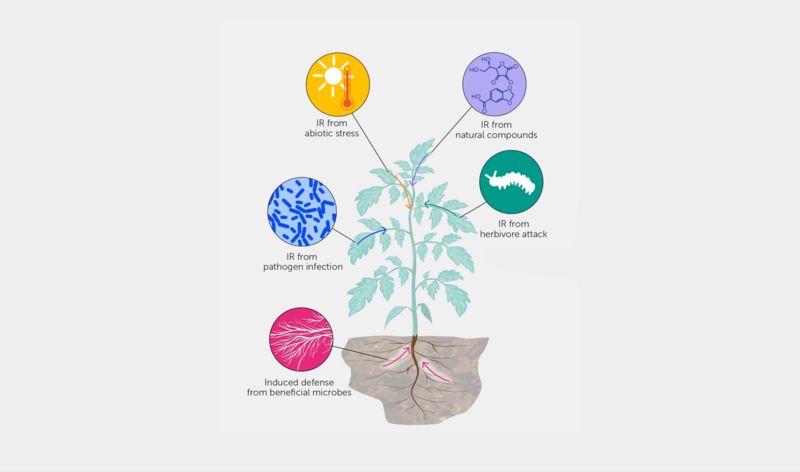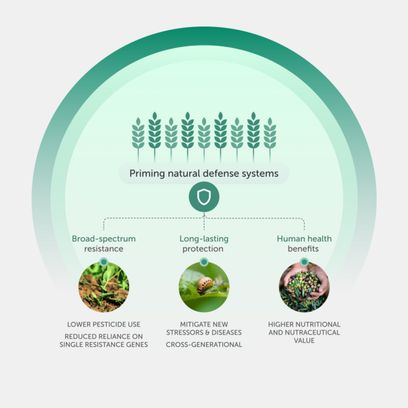
Frontiers in Science Lead Article
Published on 15 Oct 2024
Enabling sustainable crop protection with induced resistance in plants
- 43,459 views
- 14 citations


Frontiers in Science Lead Article
Published on 15 Oct 2024

Experts delved into next steps for harnessing induced resistance in plants, at a Frontiers Forum Deep Dive session on 5 December 2024.

Prof Nicole M. van Dam, Leibniz Institute for Vegetable and Ornamental Crops, Germany, argues that field studies, stakeholder collaborations, and updated legal frameworks can improve the transferability, economic viability, and consumer acceptance of induced resistance.

Drs Axel Mithöfer and Alexandra Furch, Max Planck Institute and Friedrich-Schiller-University, Germany, emphasize that “priming” plants to react quickly to stresses, combined with other strategies, could be a safe, effective approach to crop protection.

Prof Jyoti Shah, University of North Texas, USA, outlines how leveraging plants’ resistance and susceptibility genes along with induced resistance mechanisms can boost crop protection and limit economic losses while reducing pesticide reliance.

Dr Osama El-Lissy, formerly of the Food and Agriculture Organization, Italy, asserts that integrating science, technology, and a skilled workforce can close plant health policy gaps—enhancing food security, human and environmental health, and economic growth.

Submissions open: This Research Topic in Frontiers in Plant Science welcomes manuscripts on epigenetic regulation, transcriptional control, perception and signaling, trade-off, context dependency of induced resistance (IR), and side and off-target effects of IR.
Sustainable crop protection methods, such as induced resistance (IR), are being harnessed as an alternative to the excessive use of pesticides, which can lead to increased pest resistance to pesticides and harm humans, animals, and the environment.
Induced resistance can offer long-lasting protection to help the agricultural system mitigate the challenges posed by climate change, the emergence of new diseases, and a rapidly changing socioeconomic context.
Induced resistance is not only active in plant defense but can also be exploited to improve the nutritional quality and health benefits of crop products.
Maximizing the benefits of induced resistance will require a better understanding of plant biology interactions (including the epigenetic regulation of plant defenses), IR stimuli, and the environment.
Legislative action is important to ensure the quality and effectiveness of IR products and promote their wider adoption by farmers.

A summary of the lead article in a Q&A format, with an infographic and video.

An version of the lead article written for—and peer reviewed by—kids aged 8-15 years.

Induced resistance, where plants’ immune systems are activated in a controlled way that prepares them to fight pests and disease, could help build a sustainable and resilient agricultural system.

Biologists who have worked for several years at the University of Neuchâtel take stock of induced plant resistance in a multimedia special report published today by the prestigious journal Frontiers in Science.

Researchers writing in Frontiers in Science said induced resistance could prepare plants to fight pests and disease, and help build a sustainable and resilient agricultural system.

In a rapidly growing and changing world, the need to produce enough food for everyone has become more urgent than ever.
Follow the science, follow Frontiers in Science